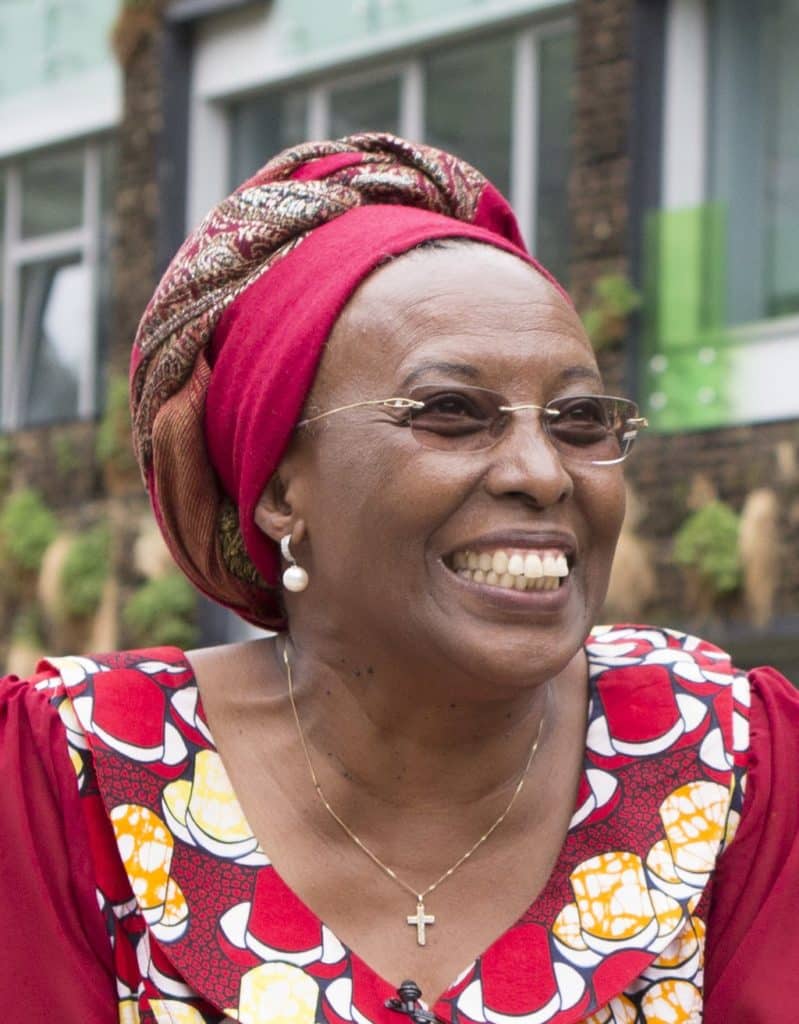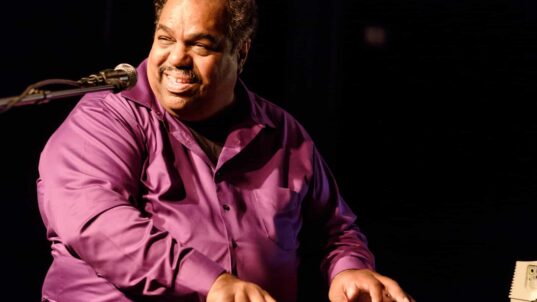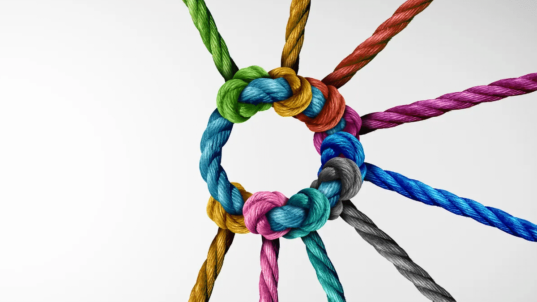
Maggy Barankitse, by Edbarseghyan, CC BY-SA 4.0, via Wikimedia Commons
Marguerite (Maggy) Barankitse was born in Ruyigi, a city in Burundi, Africa. Maggy’s father died when she was six. Her mother never remarried but Maggy’s family grew as her mother adopted 8 children. Maggy would follow in her mother’s example and adopted her first child when she was 23. The child was an orphan who had waited for a long time to be adopted. Eventually Maggy would adopt four more children. What’s striking is that Maggy was unconcerned about the ethnicity of the children she adopted. This was unheard of in Burundi where ethnic conflicts often grew violent.
When civil war erupted in Burundi in 1993, Maggy tried in vain to dissuade her fellow Tutsi from killing rival Hutus. Instead, the killers forced her to watch the massacre. Afterward, Maggy took in 25 children who had been orphaned by the massacre. She found refuge for the children in the home of a German development worker. More children arrived daily. Maggy decided to break the cascading cycle of violence by creating a cascading influence for peace.
Maggy created Maison Shalom (House of Peace) as a shelter for orphans of all ethnicities. Over time, Maison Shalom took on more activities in the community including libraries, schools, restaurants, and a microfinance bank. The schools focused on a holistic approach, combining academic training, practical skill development for sustainable income-generation, and moral education for a peaceful society.
Maison Shalom became one of the few places where the warring tribes of Hutus and Tutsi could co-exist. Tens of thousands of children have benefitted from Maison Shalom over the years.
When Maggy participated in a peaceful protest against the Burundi president, her life was threatened. She had to flee to neighboring Rwanda where civil war violence had similarly ravaged the country. Maggy created a second Maison Shalom in Rwanda.
Today Maison Shalom works in both Burundi and Rwanda with the vision: “Every person lives with dignity and flourishes fully in every society.” The guiding principles are:
- Dignity
- Compassion
- Tolerance
- Humility
- Integrity
Maggy was a recipient of the Aurora Prize for Awakening Humanity. She met with Pope Francis twice. But in her home country, she is still considered a criminal because she has denounced the killing of children and adults.
One wonders how Maggy Barankitse developed such courage. Was it from her mother’s example? What about the role of her faith and religious upbringing? What influence did the plight of the war orphans children have in shaping Maggy’s humanitarian courage? How does one develop a vision of what could be in the midst of a violent civil war? These are important questions that may not have answers, but certainly the pursuit of those answers could have a profound influence on how we think of peace.
Just imagine the cascading influence that one individual can have in bringing peace to a place where violence is the norm. Just imagine how building a capacity for collaboration can influence a society where conflict is the norm. Just imagine how principles guided by love of one’s neighbors can eventually overtake a history of violence.
* * *
“When you drop any new idea in the pond of the world, you get a ripple effect. You have to be aware that you will be creating a cascade of change.”– Jack Barker (futurist, author, and filmmaker)
This is part of our “Just Imagine” series of occasional posts, inviting you to join us in imagining positive possibilities for a citizen-centered democracy.


